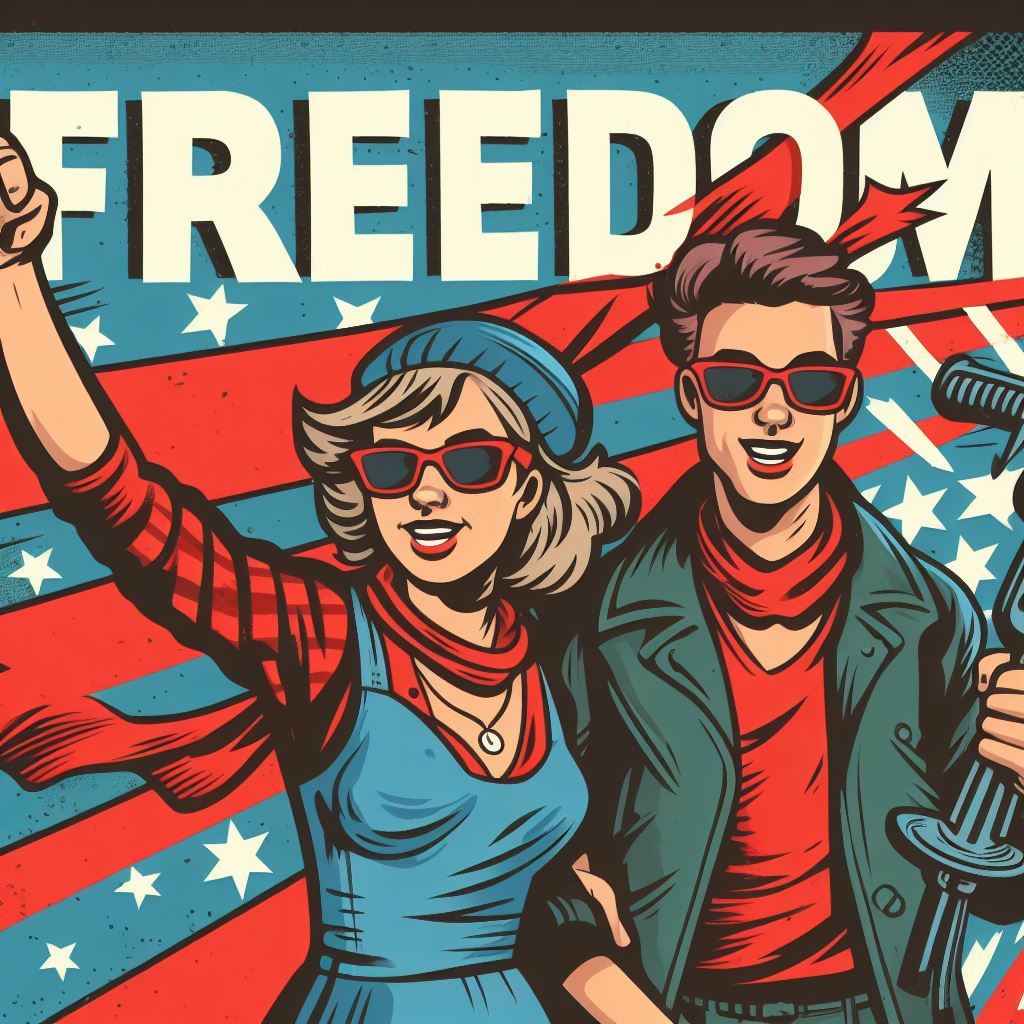
Another General Election has been held in New Zealand. The special votes are yet to be counted, but one thing is already clear: the political establishment won the election, and the freedom movement lost. While we wait to see exactly which form of the political establishment will rule over us for the next three years, there’s an opportunity to take stock of where we are and where we’re going.
Let’s recount the history of the actual freedom movement.
In a New Zealand context the freedom movement truly began with the opposition to World War One. New Zealand introduced conscription in 1916. This meant the Government forced Kiwis to fight overseas to kill the enemies of the international bankers who rule the Anglo world. Naturally, sane people opposed this, leading to them becoming labelled as “conscientious objectors“.
Conscription is a major freedom issue. There are few more egregious examples of totalitarianism than forcing men to kill people they don’t know for reasons they don’t understand. The conscientious objectors to conscription in World Wars One and Two were therefore the first real freedom fighters in New Zealand. Archibald Baxter was a household name for this reason.
The battle against globalist military adventurism continued with the battles against compulsory military training, which didn’t end in New Zealand until 1972. The basic principle remained: freedom fighters oppose the Government forcing people to do things that aren’t in their interest.
When forced militarism ended in the wake of the end of the Vietnam War, the globalist control freaks opened up a new front against the peoples of the world in the form of the Drug War. Locking people up in prison for using medicinal substances or spiritual sacraments might not be as brutal as conscripting them into battle, but the callous sadism of it was enough to spark resistance.
The names of the freedom fighters who resisted the War on Drugs are numerous. Timothy Leary, Ken Kesey, Terence McKenna, Jack Herer and many others fought for the freedom to explore our own minds free of government interference. Inspired by such people, the Aotearoa Legalise Cannabis Party was founded in 1996.
After the 20th Century ended we got 9/11 and the Patriot Act. The Patriot Act introduced restrictions on civil liberties that were previously considered unthinkable. First and foremost, it allowed for widespread spying on and surveillance of American citizens by the American Government. Incredible volumes of information were collected on everyone in an effort to predict the next terrorist attack.
These measures were soon copied by other Anglo nations, leading to the Search and Surveillance Act in New Zealand. The end result was a new wave of freedom fighters. Julian Assange and Edward Snowden are among the best known of those who resisted the new totalitarianism, this being more like Big Brother than even Orwell had predicted.
Recently we have seen the Covid pandemic excuse a new suite of totalitarian measures from the authorities. Vaccine mandates outraged a large number of people and led to the Parliament Lawn protests in 2022. These protests were one of the major achievements of the freedom movement in New Zealand, and created another new wave of people who understood the value of freedom for its own sake.
Looking back at all of these battles, some patterns are evident.
First, the freedom movement is primarily a movement against government coercion. It’s not terrorism to understand that governments often have different interests to their citizens. When those interests clash, governments often use their monopoly on violence to force the citizens to do the governments’ bidding.
The freedom movement isn’t primarily a moral crusade. It isn’t primarily a temperance, chastity or Puritanical movement. It might contain elements of those things on occasion, but the number one enemy is government forcing the citizens to do things against their own interests (as determined by the citizens). The freedom movement is certainly not about using the power of government to coerce others to behave morally.
Second, the freedom movement is against the freedom to cause harm to others. We must observe Zechariah Chafee’s maxim that “Your right to swing your arms ends just where the other man’s nose begins.” As such, no marital rapists, pedophiles, armed robbers, slavery advocates, hard drug traffickers, cheap labour importers or vaccine mandate supporters need be included.
These two points give us a much better idea of what we can agree freedom is, and therefore what the freedom movement is about.
Kelvyn Alp’s suggestion was to not worry about freedom so much, and to focus on truth instead. This means facts and evidence first and foremost. This makes sense as freedoms are usually downstream from perceptions of truth. Unfortunately there are many different ideas about what truth is, and many different ideas about how to determine truth from falsehood.
It seems that the freedom movement can’t make any progress until we develop a coherent fundamental philosophy. This will have to include the values and beliefs commonly agreed upon by those who genuinely desire freedom. Perhaps the model to follow is the American Constitutional Convention that took place after the American Revolution.
*
For more of VJM’s ideas, see his work on other platforms!
For even more of VJM’s ideas, buy one of his books!
*
If you enjoyed reading this essay/article, you can get a compilation of the Best VJMP Essays and Articles from 2021 from Amazon as a Kindle ebook or paperback. Compilations of the Best VJMP Essays and Articles of 2020, the Best VJMP Essays and Articles of 2019, the Best VJMP Essays and Articles of 2018 and the Best VJMP Essays and Articles of 2017 are also available.
*
If you would like to support our work in other ways, subscribe to our SubscribeStar fund, or make a donation to our Paypal! Even better, buy any one of our books!
